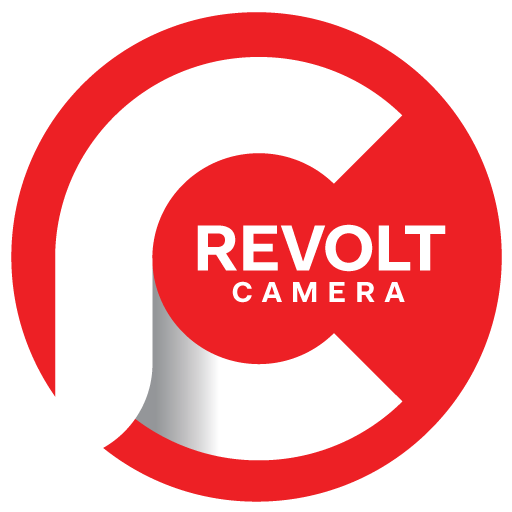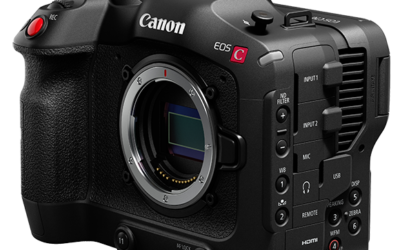Sony FX3 vs. Canon C70:
Which Compact Cinema Camera is Right for Your Production?
The Sony FX3 and Canon C70 are two high-performance, compact cinema cameras with distinct advantages, each tailored to the specific needs of filmmakers, cinematographers, and video professionals. Compact, powerful, and capable of producing stunning footage, both cameras are worthy choices for content creation in commercials, documentaries, music videos, and even feature-length projects. This comparison explores the key features, real-world use cases, and unique strengths of each, helping you make an informed decision about which one is right for your next project.
As part of Sony’s Cinema Line, the FX3 blends the company’s mirrorless technology with cinema-grade features. It offers a full-frame 12.1MP Exmor R sensor, outstanding low-light performance, and 4K recording up to 120fps. With S-Cinetone colour science and 15+ stops of dynamic range, the FX3 delivers cinematic quality in an ultra-compact body weighing just 1.58 lbs. It’s also tailored for handheld and gimbal work, with impressive in-body image stabilization (IBIS).
Comparative Analysis:
The C70 brings Canon’s acclaimed Super 35mm DGO sensor and cinema-specific capabilities into a compact form factor. It features 4K up to 120fps, C-Log2/3, and a DGO sensor that achieves 16+ stops of dynamic range. Built for documentary and independent filmmaking, the C70 retains the compactness of Canon’s mirrorless cameras but adds extra pro-grade video capabilities, like built-in ND filters and XLR audio inputs.
Build Quality and Usability
Sony FX3:
Built with a lightweight, weather-sealed magnesium alloy body, the FX3 offers a sturdy yet nimble design, perfect for guerrilla-style filmmaking or working in confined spaces. Its controls are intuitive, modelled closely after the popular A7S III, making it familiar to Sony shooters. The FX3 has multiple mounting points, a removable top handle with XLR inputs, and fanless active cooling, all adding to its on-set versatility.
Canon C70:
Heavier and more robust than the FX3, the C70 weighs about 2.6 lbs and comes with a familiar camcorder-style grip and interface for seamless handheld shooting. With integrated ND filters, a sturdy grip, and user-friendly ergonomics, the C70 is an ideal choice for long shooting sessions or documentary-style setups. Its cooling fan system and in-camera tools also enhance usability for extended filming, making it a dependable choice in high-stress environments.
The C70 sports Canon’s RF mount, supporting Canon’s cutting-edge RF glass, which includes some of the highest-quality lenses in the industry. RF lenses are fast, sharp, and compatible with Canon’s new autofocus system. Additionally, with an EF-RF adapter, the C70 is compatible with Canon’s extensive lineup of EF lenses, meaning users can leverage Canon’s renowned L-series for a variety of looks and focal lengths.
The FX3’s full-frame sensor and dual ISO sensitivity (ISO 640 and ISO 12800 or 800-12800 in Cine EI) make it outstanding in low-light settings, perfect for filmmakers working with limited lighting setups or natural light. Its S-Cinetone profile emulates Sony’s VENICE colour science, offering beautifully cinematic tones straight out of the camera. With 4K DCI recording at up to 120fps and 10-bit 4:2:2 colour, the FX3 provides filmmakers with versatile, high-quality footage in a range of challenging lighting conditions.
The C70’s Super 35mm DGO sensor shines in mixed lighting situations, capable of achieving 16+ stops of dynamic range. The DGO (Dual Gain Output) technology excels at preserving details in both shadows and highlights, making it a preferred option for productions with complex lighting. In low-light environments, the C70’s sensor holds up well, but for ultra-low-light scenarios, the FX3’s full-frame sensor may offer an edge. Canon’s acclaimed C-Log 2/3 profiles provide fantastic colour flexibility in post-production.
The FX3’s lightweight build, low-light prowess, and full-frame flexibility make it ideal for handheld, gimbal, and guerrilla-style filmmaking. Indie filmmakers, music video directors, and content creators who need mobility without sacrificing quality will find the FX3’s compact form and high frame rate capabilities an asset on smaller sets. Its 4K 120fps recording opens up slow-motion possibilities, enhancing its appeal for sports, action, and creative commercial work.
The C70’s Super 35mm sensor, built-in ND filters, and ergonomic design make it highly suited for documentary filmmakers, corporate video production, and small crews. The camcorder-style grip allows for extended handheld shooting with minimal fatigue, and the internal ND filters eliminate the need for additional rigging, saving time in documentary and run-and-gun environments. The C70 also excels in controlled studio or interview settings, providing broadcast-level quality with its rich colour science and excellent dynamic range.
Typically priced higher, the FX3 offers premium full-frame capabilities and Sony’s top-tier low-light performance. It’s a high-value investment for those who need cinema quality in a small form and can benefit from the FX3’s robust feature set, including 4K 120fps, S-Cinetone, and a weather-sealed build.
The C70 is priced competitively and offers exceptional value, particularly for filmmakers who prioritize dynamic range and color depth. Its Super 35mm sensor is more than capable of delivering cinematic results, and the built-in NDs, high dynamic range, and Canon Log make it an attractive choice for professionals seeking high-end video quality at a relatively accessible price.
For filmmakers seeking a compact, versatile cinema camera, both the Sony FX3 and Canon C70 are exceptional choices, each catering to slightly different needs.
Choose the Sony FX3 if you need full-frame low-light capabilities, prefer a compact design for handheld and gimbal work, or plan on shooting in a variety of challenging lighting environments. Choose the Canon C70 if you work primarily in documentary or corporate settings, require high dynamic range with built-in ND filters, or prefer Canon’s color science and lens compatibility. Revolt Camera offers rentals of both the Sony FX3 and Canon C70, giving filmmakers access to top-tier cinema quality without the long-term commitment. Whether you’re a documentary filmmaker, commercial director, or independent storyteller, Revolt’s extensive camera offerings ensure you can choose the perfect setup for any project, with the reliability and support that professional productions demand.
Have questions about your production or our equipment? Revolt Camera supports storytellers on their journey from providing production advice and support, to the equipment you need to capture your content. Our dedicated gear specialists and industry experts will be here for you every step of the way.


















